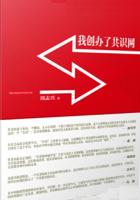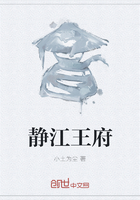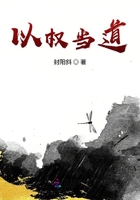The long files marched on, and, diminished as they were by so many causes, appeared still an iron host, to whom the conquest of Palestine might seem an easy task. The soldiers, inspired by the consciousness of united strength, sat erect in their steel saddles, while it seemed that the trumpets sounded more cheerfully shrill, and the steeds, refreshed by rest and provender1, chafed on the bit and trod the ground more proudly. On they passed, troop after troop, banners waving, spears glancing, plumes dancing-a host composed of different nations, complexions, languages, arms, and appearances, but all fired for the time with the holy yet romantic purpose of rescuing Jerusalem and redeeming the sacred earth, which more than mortal had trodden, from the yoke of the unbelieving pagan. And the species of courtesy rendered to the king of England by so many warriors was the willing homage which the brave paid to the bravest, in an expedition where the greatest courage was necessary to success.
1 Provender: food, especially for domestic animals.
The good king was seated on horseback about halfway up the mount, a helmet on his head, surmounted by a crown, which left his manly features exposed to public view, as, with cool and considerate eye, he looked on each rank as it passed him, and returned the greetings of the leaders. His tunic1 was of sky-colored velvet, covered with plates of silver, and his hose of crimson silk slashed with cloth of gold. By his side stood the seeming Ethiopian slave, holding the noble dog in a leash such as was used in woodcraft. It was a circumstance which attracted no notice, for many of the princes of the Crusade had introduced black slaves into their household, in imitation of the barbarous splendor of the Saracens. Over the king"s head streamed the large folds of the banner, and, as he looked to it from time to time, he seemed to regard a ceremony, indifferent to himself personally, as important when considered as offered to the kingdom which he ruled. In the background and on the very summit of the mount, a wooden turret2, erected for the occasion, held the queen and the principal ladies of the court. To this the king looked from time to time, and often his eyes were turned on the Nubian and the dog, but only when such leaders approached, as, from circumstances of previous ill-will, he suspected of being accessory3 to the theft of the standard, or whom he judged capable of a crime so mean.
Thus, he did not look in that direction when Philip4 Augustusof France approached at the head of his splendid troops; nay,1 Tunic: a loose-fitting garment. 2 Turret: a small tower.
3Accessory: connected with as a helper.
4Philip II. (1165-1223): king of France, called Augustus, the Imperial.
he anticipated the motions of the French king, by descending the mount as the latter came up the ascent, so that they met in the middle space, and blended their greetings so gracefully that it appeared they met in fraternal equality.
The troops of the Marquis of Montserrat next passed in order before the king of England. Before this band came Conrade, in the same garb with the troops, but of such rich stuff that he seemed to blaze with gold and silver, and the milk-white plume fastened in his cap by a clasp of diamonds, seemed tall enough to sweep the clouds. The noble steed which he reined bounded and displayed his spirit in a manner which might have troubled a less admirable horseman than the marquis, who gracefully ruled him with one hand. Yet his authority over the troops was more in show than in substance; for there paced beside him, on an ambling palfrey1 of soberest mood, a little old man, dressed entirely in black, without beard or mustaches, and having an appearance altogether mean and insignificant when compared with the blaze of splendor around him. But this mean-looking old man was one of those deputies whom the Venetian government sent into camps to overlook the conduct of their generals, and to maintain that jealous system of espial2 and control which had long been the policy of the republic.
Conrade, who had attained a certain degree of favor with Richard, no sooner was come near than the king descended a step or two to meet him, exclaiming, at the same time: "Ha, Lord Marquis, thou at the head of thy troops and thy black1 Palfrey: a small saddle horse. 2 Espial: spying.
shadow attending thee as usual, whether the sun shines or not! May not one ask thee whether the rule of the troops remains with the shadow or the substance?"Conrade was commencing his reply with a smile, when Roswal, the noble hound, uttering a furious and savage yell, sprang forward. The Nubian at the same time slipped the leash, and the hound rushing on leaped upon Conrade"s noble charger, and, seizing the marquis by the throat, pulled him down from the saddle. The plumed rider lay rolling on the sand, and the frightened horse fled in wild career through the camp.
"Thy hound hath pulled down the right quarry, I warrant him," said the king to the Nubian. "Pluck the dog off lest he throttle him."The Ethiopian, accordingly, though not without difficulty, disengaged the dog from Conrade, and fastened him up still highly excited and struggling in the leash. Meanwhile many crowded to the spot, especially followers of Conrade, who, as they saw their leader lie gazing wildly on the sky, raised him up amid a cry of, "Cut the slave and his hound to pieces!"But the voice of Richard was heard clear above all other exclamations: "He dies the death who injures the hound! He hath but done his duty, after the sagacity with which God and nature have endowed the brave animal. Stand forward for a false traitor, thou Conrade, Marquis of Montserrat! I impeach1 thee of treason."Several of the leaders had now come up, and Conrade,vexation and confusion struggling with passion in his manner1 Impeach: charge; accuse.















